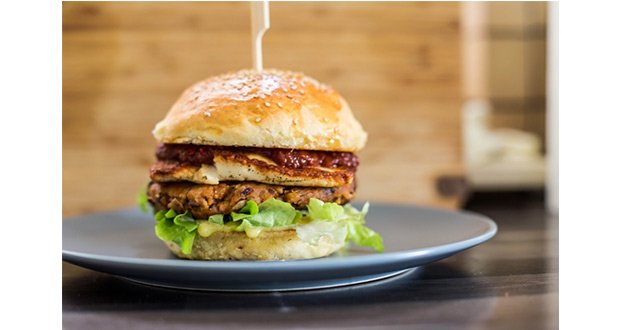Yes, It’s “OK” To Call Veggie Burgers….Veggie Burgers

 A House of Lords committee has once again defended the right of veggie burgers to call themselves burgers.
A House of Lords committee has once again defended the right of veggie burgers to call themselves burgers.
Peers on the EU Energy and Environment subcommittee heard evidence from vegetarian groups and representatives from the farming industry following an EU amendment calling for a ban on the use of terms like sausage, burger and mince for non-meat products.
The amendment was introduced to ensure customers are not confused by the terms such as burger and sausage, suggesting that items containing no meat be called “discs or tubes”.
The proposals, approved by the EU’s agriculture committee, will be voted on by the full parliament, after which they will be put to member states and the European commission.
However, Britain’s House of Lords look set to fight the issue.
Peers have written a letter challenging the idea that the current naming system was misleading.
The EU Energy and Environment Sub-Committee took evidence from several witnesses, including Dr Geoff Bryant from Quorn Foods who said ‘In over 30 years of making meat-free products, not a single person has complained to us that they were misled.’
In a letter to Agriculture minister Robert Goodwill MP, chair of the committee Lord Teverson wrote: ‘Our witnesses were unanimous in the view that current naming conventions around vegetarian burgers and sausages in particular are clear and easy to understand.
‘As Ruth Edge from the National Farmers’ Union stated, “Those are traditional items for the UK market, and consumers are very familiar with those terms anyway.”‘
He said that banning the terms ‘burger’ and ‘sausage’ could end up leading to a ‘plethora’ of different terms for the foods which ended up making things more, not less, confusing.
It was fixing a problem that didn’t exist as less than 4% of people had ever unintentionally bought a vegetarian product instead of a meat free version, the committee said.
The proposed ban came at a time when the heath and environmental drawbacks of meat are becoming more acknowledged, he added.
‘In that context, we are concerned that the amendment may create a barrier for consumers who are trying to reduce their meat intake,’ the letter says.
‘In summary, we are concerned that the amendment would in fact reduce consumer clarity, be a barrier to growth for a burgeoning sector of the food industry, and ultimately make it more challenging for people to reduce the amount of meat in their diet at a time when Government should be seeking to encourage the opposite.’
The proposed amendment to the Common Agricultural Policy might not directly apply to the UK after Brexit, but it would mean we couldn’t trade British veggie burgers with the EU unless they were renamed as ‘discs’ or something similar.
